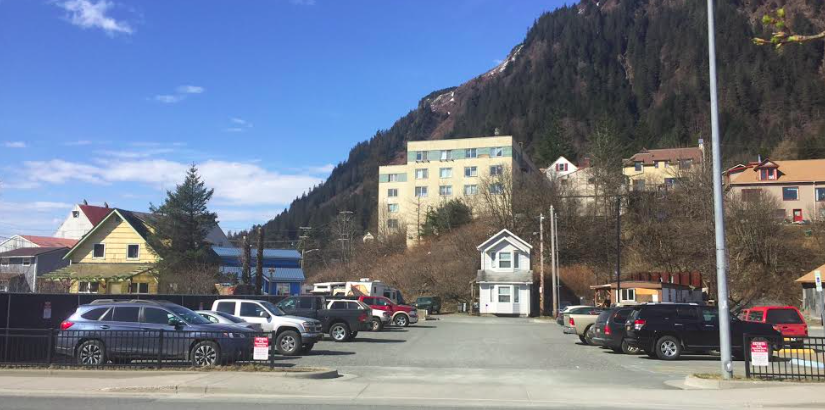One block of Juneau is now designated as “Indian Country,” which means it has its own laws. State and city laws don’t apply on this small piece of land just below the Governor’s House. The Central Council of the Tlingit and Haida Indian Tribes of Alaska have jurisdiction, even though downtown Juneau was never inhabited by Tlingit or Haida tribes, due to the excessive rain.
The State of Alaska has taken legal action against the Department of the Interior’s decision to put that block into trust with the federal government to create Indian Country.
In a motion for summary judgment filed today in the U.S. District Court for Alaska, the State argues that Congress did not grant the Secretary of the Interior the authority to change the compromises established in the Alaska Native Claims Settlement Act of 1971.
At the center of the controversy is the Interior Department’s Assistant Secretary of Indian Affairs, Bryan Newland, who granted a petition to place lands into trust in Juneau.
The State contests this action, asserting that the Assistant Secretary lacks clear authority from Congress to alter the balance of territorial jurisdiction in the state.
Alaska Attorney General Treg Taylor said, “ANCSA was a carefully crafted compromise aimed at settling land claims and empowering Alaska Natives through the establishment of Alaska Native Corporations.
The decision to create a reservation in downtown Juneau appears to contradict the spirit of ANCSA and raises questions about the land claims in Alaska.
“For decades prior Solicitors concluded that the Lower 48 reservation system did not exist, could not exist in Alaska—that was the compromise made under ANCSA to settle lands claims in the State and give Alaska Natives–according to testimony at the time–more self-determination through the creation of Alaska Native Corporations. The Assistant Secretary’s action to completely reverse historical understanding and policy by creating a reservation in downtown Juneau, Alaska, seems to fly in the face of ANCSA and throws into question what the land claims are in Alaska. To avoid confusion and give certainty to all the parties involved, we need the courts, hopefully the highest Court, to tell us once and for all, what the law actually is,” Taylor said.
“To ensure clarity and avoid confusion, we are seeking the courts, potentially the highest Court, to definitively determine the law.”
The State’s motion highlights the implications of creating Indian country in Alaska, as it would shift territorial jurisdiction away from the State to the federal government and the respective tribes. Indian tribes within Indian country have extensive authority over both their members and the land, including non-members. In contrast, States are generally restricted from exercising their sovereignty within Indian country.
“By creating Indian country in Alaska, the Secretary is shifting territorial jurisdiction away from the State and placing it with itself and the Tribe. Within Indian country, Indian tribes have broad authority not only over their own members but over the land and non-members. States, on the other hand, are generally precluded from exercising fundamental attributes of their sovereignty within Indian country. While this may not seem significant here, given that this case is about an unused 787 square foot parcel, there are currently 227 federally recognized tribes in Alaska. That is potentially 227 new territorial jurisdictions,” the state said.
ANCSA, passed by Congress, explicitly avoided establishing a reservation system in Alaska. The act extinguished Alaska Natives’ aboriginal claims while providing compensation in the form of $962.5 million and 44 million acres of land.
The act revoked the few reserves/reservations that had been created in Alaska, with the exception of Metlakatla, and allowed for the formation of over 200 State-chartered village and regional corporations owned and operated by Natives as for-profit businesses subject to State law.
The State contends that such a significant decision as placing an Alaska tribe’s lands into trust should be determined by Congress and not left to a federal agency.
